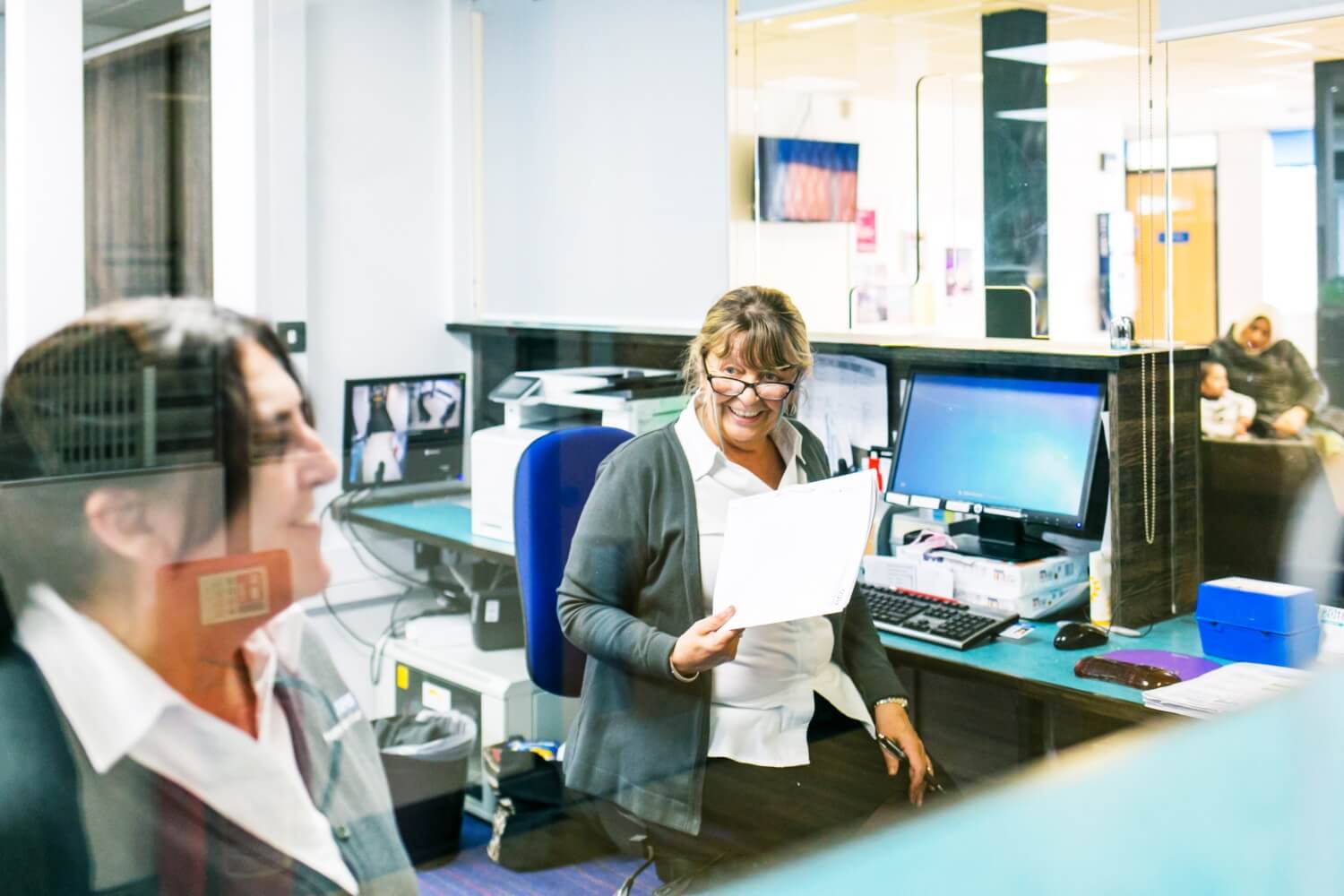
Published date: 25 October 2022
Local NHS receptionists to receive loneliness training in a bid to ease pressure on health services
In a first-of-its kind partnership, NHS Property Services (NHSPS) and Campaign to End Loneliness are delivering training to NHS receptionists across the country to enable them to support patients showing signs of loneliness.
Following a successful pilot NHS receptionists are set to receive a first-of-a kind training this Autumn to enable them to support patients visiting health services and presenting with signs of loneliness. During the COVID-19 pandemic, 1 in 4 people in Cambridgeshire reported feeling lonely either often or at least some of the time.1
The training will be delivered by NHS Property Services (NHSPS); a government-owned company which manages around 10% of the NHS estate, in partnership with Campaign to End Loneliness. Loneliness impacts people in a variety of ways, including socially, emotionally, and financially. It is an unwelcome feeling of lack or loss of companionship, which happens when there is a mismatch between the relationships that we have, and those that we want.4 Loneliness can arise at any time but can be more common at major life changes such as moving house or job, or family changes.
People who experience loneliness are more likely to visit their GP and to use other health services such as A&E, putting pressure on already stretched services.2,3 A survey by the Royal College of GPs found that 75% of GPs say that between one and five consultations per day are due to loneliness.
Hilary Stables, Chief People Officer, NHSPS, said, “Our NHS receptionists are the first port of call of people accessing medical services and are therefore in a prime position to make a difference, so we are excited to be partnering with Campaign to End Loneliness to upskill our receptionist teams in spotting and supporting those suffering from loneliness. We are committed to supporting the NHS in creating healthier communities, including through tackling loneliness, which can negatively impact both mental and physical health.”
The effect of loneliness and isolation on mortality is comparable to the impact of well-known risk factors, such as obesity and has a similar influence as cigarette smoking.5 Research suggests a reduction in loneliness from ‘severe’ to ‘moderate’ would have the same wellbeing benefit to the average person as a rise in income of £9,537 per year.6
The training will focus on equipping receptionists with knowledge on the key risk factors of loneliness, identifying and supporting people at risk, and self-care. It will support the delivery of the government’s 2018 strategy on tackling loneliness, now in its third year, by complementing the objective of ‘driving a lasting shift’ in loneliness services delivery across society.
Robin Hewings, Programme Director of the Campaign to End Loneliness, said, “Loneliness can lead to a host of health issues, including an increased risk of stroke, high blood pressure, dementia and depression. More than 22 million people in Britain, around one third of the whole population, have felt lonely some of the time or occasionally. This worrying statistic highlights loneliness as one of the key issues facing our society today. By partnering with NHSPS on this training programme, we will help NHS reception teams to direct lonely people to specialist services to get them the support they need, whilst also freeing up GP time.”
The NHS receptionist training began with a pilot in Stockport in the Northwest of England in September and the scheme is now being expanded nationwide, reaching nearly 400 NHSPS receptionists.
References
- Royal College of General Practitioners. Loneliness. https://www.rcgp.org.uk/policy/rcgp-policy-areas/loneliness.aspx (accessed October 2022).
- Burns A, Leavey G and O’Sullivan R. Loneliness and Healthcare Use in Older Adults: Evidence From a Nationally Representative Cohort in Northern Ireland—A Cross-Sectional Replication Study. Front Public Health. 2021;5;9:620264.
- Campaign to End Loneliness, 2022.
- Drawing on Perlman, D. & Peplau, L. A. (1981) Toward a Social Psychology of Loneliness. In R. Gilmour & S. Duck (Eds.), Personal Relationships: 3. Relationships in Disorder (pp. 31-56). London: Academic Press.
- Holt-Lunstad J, Smith TB, and Layton, J.B., 2010. Social relationships and mortality risk: a meta-analytic review. PLoS medicine, 7(7), p.e1000316.
- Simetrica on behalf of the Department for Culture, Media and Sport. ‘Loneliness Monetisation Report’. 2021. Available at: https://www.gov.uk/government/publications/loneliness-monetisation-report (accessed October 2022).








